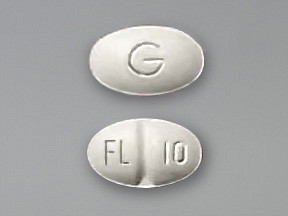FLUOXETINE - ORAL
PHONETIC PRONUNCIATION: (floo-OX-e-teen)
COMMON BRAND NAME(S): Prozac, Sarafem
GENERIC NAME(S): fluoxetine HCl
Uses
USES: Fluoxetine is used to treat depression, panic attacks, obsessive compulsive disorder, a certain eating disorder (bulimia), and a severe form of premenstrual syndrome (premenstrual dysphoric disorder). This medication may improve your mood, sleep, appetite, and energy level and may help restore your interest in daily living. It may decrease fear, anxiety, unwanted thoughts, and the number of panic attacks. It may also reduce the urge to perform repeated tasks (compulsions such as hand-washing, counting, and checking) that interfere with daily living. Fluoxetine may lessen premenstrual symptoms such as irritability, increased appetite, and depression. It may decrease binging and purging behaviors in bulimia.
How to use FLUOXETINE - ORAL
HOW TO USE: Read the Medication Guide provided by your pharmacist before you start using fluoxetine and each time you get a refill. If you have any questions, ask your doctor or pharmacist. Take this medication by mouth as directed by your doctor, usually once daily in the morning. If you are taking this medication twice a day, your doctor may direct you to take it in the morning and at noon. If you are taking fluoxetine for premenstrual problems, your doctor may direct you to take it every day of the month or just for the 2 weeks before your period through the first full day of your period. To help you remember, mark your calendar. If you are using the liquid form of this medication, measure the dose carefully using a special measuring device/spoon. Do not use a household spoon because you may not get the correct dose. The dosage is based on your medical condition and response to treatment. To reduce your risk of side effects, your doctor may direct you to start this medication at a low dose and gradually increase your dose. Follow your doctor's instructions carefully. Take this medication regularly to get the most benefit from it. To help you remember, take it at the same time each day. It is important to continue taking this medication as prescribed even if you feel well. Do not stop taking this medication without first consulting your doctor. Some conditions may become worse when the drug is abruptly stopped. Your dose may need to be gradually decreased. You should see some improvement in 1 to 2 weeks. It may take 4 to 5 weeks before you feel the full benefit. Tell your doctor if your condition does not improve or if it worsens.
Side Effects
Precautions
Interactions
Overdose
Images

- color
- orange
- shape
- oblong
- imprint
- 93 7198, 93 7198

- color
- orange
- shape
- oblong
- imprint
- 93 7198, 93 7198

- color
- orange
- shape
- oblong
- imprint
- 93 7198, 93 7198
Reviews
Faq for FLUOXETINE - ORAL
Fluoxetine is an oral medication that belongs to the selective serotonin reuptake inhibitor (SSRI) class of drugs. It is commonly prescribed to treat depression, panic disorder, obsessive-compulsive disorder (OCD), bulimia nervosa, and premenstrual dysphoric disorder.
Fluoxetine works by increasing the levels of serotonin, a neurotransmitter, in the brain. This helps to improve mood, regulate emotions, and reduce symptoms of depression or other related conditions.
The recommended starting dosage for fluoxetine varies depending on the condition being treated. For depression, the typical starting dose is 20 mg per day, while for OCD, the starting dose may be higher (e.g., 40 mg per day). The dosage can be adjusted by a healthcare professional based on individual response and tolerability.
The effects of fluoxetine may not be immediately noticeable. It usually takes several weeks (around 4-6 weeks) for the full benefits to be experienced. It is important to continue taking the medication as prescribed, even if no immediate improvement is observed.
Common side effects of fluoxetine can include nausea, diarrhea, drowsiness, dry mouth, weight changes, and sexual dysfunction. These side effects are generally mild and may diminish over time. However, if they persist or become bothersome, it is recommended to consult a healthcare professional.
It is important to discuss the risks and benefits of fluoxetine with a healthcare professional if you are pregnant or planning to become pregnant. Fluoxetine may be prescribed in certain situations, but caution should be exercised. Similarly, the use of fluoxetine during breastfeeding should be discussed with a healthcare provider.
Fluoxetine may interact with certain medications, such as monoamine oxidase inhibitors (MAOIs), other SSRIs, blood thinners, and certain migraine medications. Inform your healthcare professional about all the medications, supplements, or herbal products you are currently taking to avoid potential drug interactions.
Yes, abrupt discontinuation of fluoxetine may lead to withdrawal symptoms such as dizziness, headache, nausea, irritability, or flu-like symptoms. It is typically recommended to gradually reduce the dosage under medical supervision when discontinuing this medication.
Fluoxetine is not considered addictive. It does not produce a "high" or lead to physical dependence. However, abrupt discontinuation may cause withdrawal symptoms, as mentioned earlier.
Warning
WARNING: Antidepressant medications are used to treat a variety of conditions, including depression and other mental/mood disorders. These medications can help prevent suicidal thoughts/attempts and provide other important benefits. However, studies have shown that a small number of people (especially people younger than 25) who take antidepressants for any condition may experience worsening depression, other mental/mood symptoms, or suicidal thoughts/attempts. Therefore, it is very important to talk with the doctor about the risks and benefits of antidepressant medication (especially for people younger than 25), even if treatment is not for a mental/mood condition. Tell the doctor right away if you notice worsening depression/other psychiatric conditions, unusual behavior changes (including possible suicidal thoughts/attempts), or other mental/mood changes (including new/worsening anxiety, panic attacks, trouble sleeping, irritability, hostile/angry feelings, impulsive actions, severe restlessness, very rapid speech). Be especially watchful for these symptoms when a new antidepressant is started or when the dose is changed.
Disclaimer
IMPORTANT: HOW TO USE THIS INFORMATION: This is a summary and does NOT have all possible information about this product. This information does not assure that this product is safe, effective, or appropriate for you. This information is not individual medical advice and does not substitute for the advice of your health care professional. Always ask your health care professional for complete information about this product and your specific health needs.




No Reviews Yet